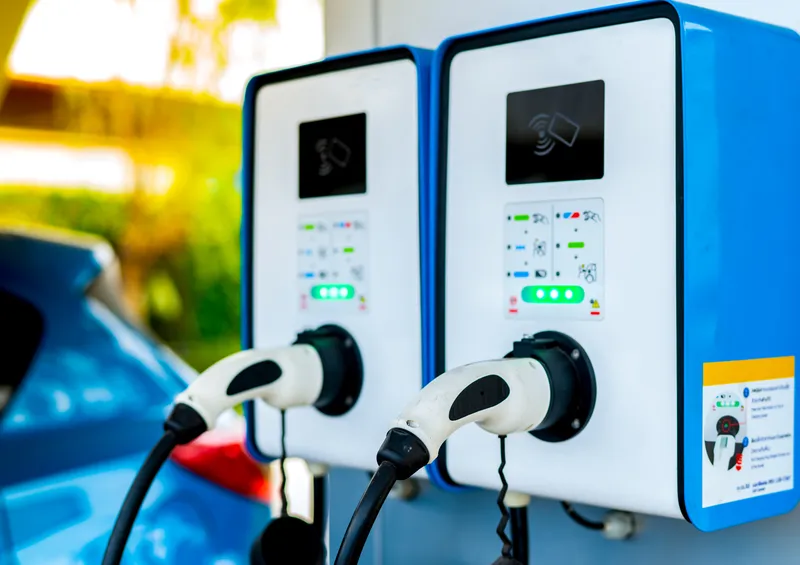Chancellor of the Exchequer Philip Hammond has announced a £400m ($532m) charging infrastructure fund for electric vehicles (EVs), an extra £100m ($133m) investment in Plug-In-Car Grant, and a £40m ($53m) in charging R&D in the UK’s Autumn Budget 2017. He added that laws need to be clarified so that motorists who charge their EVs at work will not face a benefit-in-kind charge from next year.
Hammond added that from April 2018 the first year VED rate for diesel cars that fail to meet the latest standards will go up by one band and the existing diesel supplement in Company Car Tax will increase by 1%.
Responding to Philip Hammond's pledge, Nick Smee, chief executive officer of UK based Infrastructure Asset Management firm
“With this in mind, I’d also like to see the speeding up and rollout of faster, higher capacity communications networks to allow the rapid deployment of IoT devices, enabling better connectivity across the network. This in turn will provide greater visibility to national and local government of the condition of their infrastructure assets and lead to better, more efficient asset management practices.
“It is key, however, that the government not only builds on its existing commitments to upgrade the national road network but also puts money behind maintaining the local roads that local communities depend on every day.
“It would also be great if the government further enhanced the Incentive Fund to reward best practice in local government because the backlogs are still huge and more money is urgently required. Relaxing the rules on borrowing by local authorities that demonstrate attractive cost savings over the medium to long-term, would also be welcome.”
“Much research and development is required before fully-driverless vehicles become commonplace on our roads, but the measures announced today will help bring this vision a significant step closer and position the UK alongside other leading nations who are at the forefront of the electric and autonomous vehicle revolution.
“With the support of the UK government and the development of innovative test beds, such as the Smart Mobility Living Lab: London, we are confident that we will be helping vehicle manufacturers and mobility service providers to test fully-driverless cars and vehicles on British roads in 2019, with commercial products being available by 2021. The first vehicles may be limited to certain roads and environments, such as motorways or pre-determined routes within cities, but the rate of progress could surprise many in the industry."
Bram Miller, technical director at Ramboll Environ, said: “Chancellor Phillip Hammond said today that ‘we owe it to our children to ensure that the air they breathe is clean.’, and we agree that air quality must be a key concern in the years to come. We welcome the government’s £400m investment in charging infrastructure, the £100m plug-in car grant and a further £40m for research into charging for electric cars, and their overall commitment to work towards driverless vehicles.
“We feel that if this investment is targeted intelligently, with the right technology in the right locations, it can not only improve air quality but also contribute to reducing carbon emissions and noise pollution.
“Electric vehicles will bring significant new demand for electricity – so the plan to proliferate charging points around the country must be carefully considered to make sure that these points are properly distributed.
“Additionally, this is an opportunity to restrict the use of highly polluting vehicles in areas of poor air quality, going beyond congestion charges to really protect the air of our city centres in particular. This must be an eventual goal for the government if they are to embrace electric vehicles.”
Graham Hill, car finance expert, responded: It's hard to see whether the Chancellor's further squeeze on diesel drivers is out of genuine concern for the environment or just a way to increase revenues from already overtaxed motorists.
"The announcement of a first year VED rate hike on new diesel cars from April next year is designed to sidestep headline-grabbing increases on other motor vehicles like vans, but it still adds to the negative narrative that is talking the automotive market down.
"In the run-up to the Budget, new and used car sales of diesels have suffered significantly - which has had a wider effect on the new car market as customers hold off on purchases in the hope that values recover.
"At this rate, we risk talking the car market into serious trouble."
A full copy of the announcement is available %$Linker:
Autumn budget: EV charging infrastructure fund and higher tax rates for diesel vehicles
Chancellor of the Exchequer Philip Hammond has announced a £400m ($532m) charging infrastructure fund for electric vehicles (EVs), an extra £100m ($133m) investment in Plug-In-Car Grant, and a £40m ($53m) in charging R&D in the UK’s Autumn Budget 2017. He added that laws need to be clarified so that motorists who charge their EVs at work will not face a benefit-in-kind charge from next year.
November 23, 2017
Read time: 5 mins







